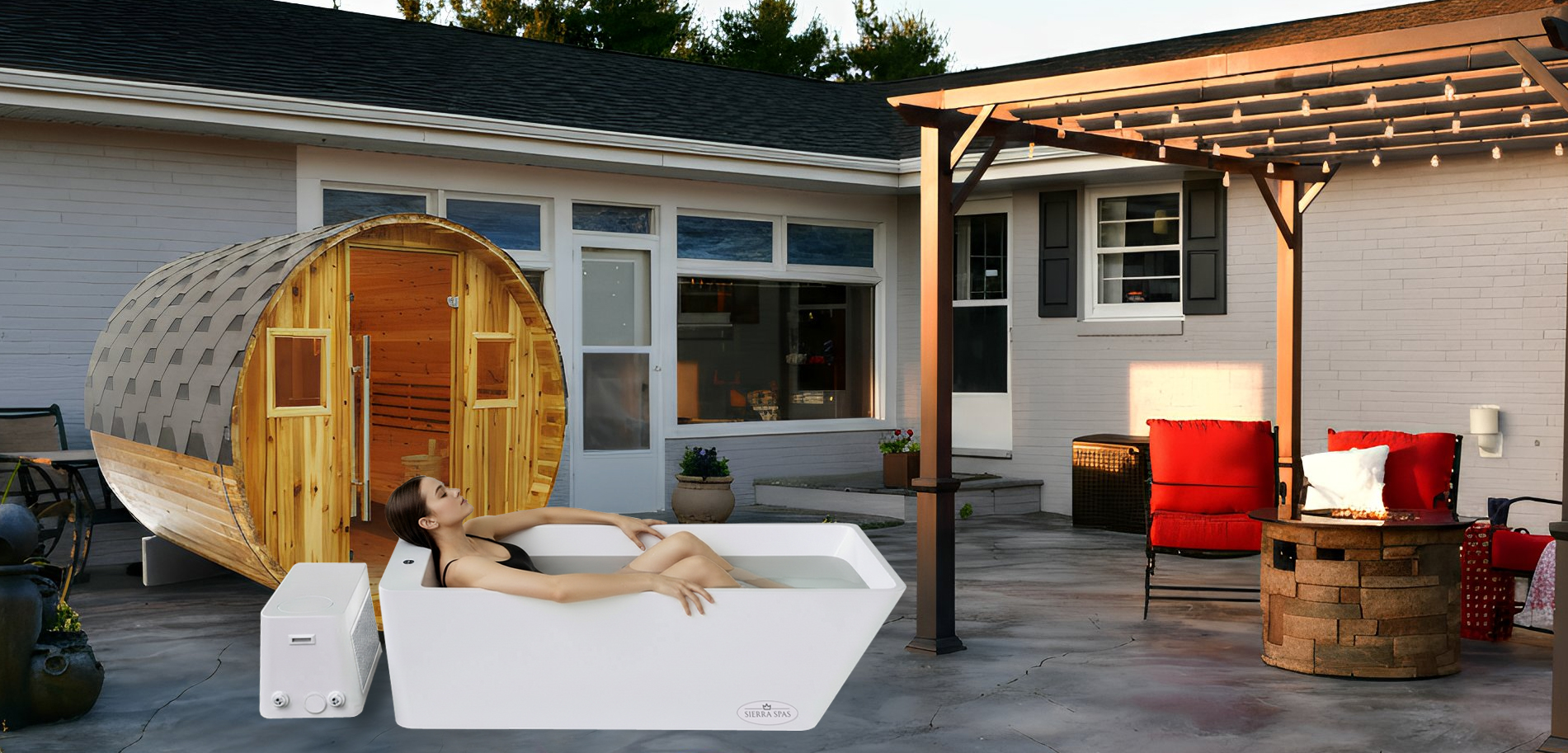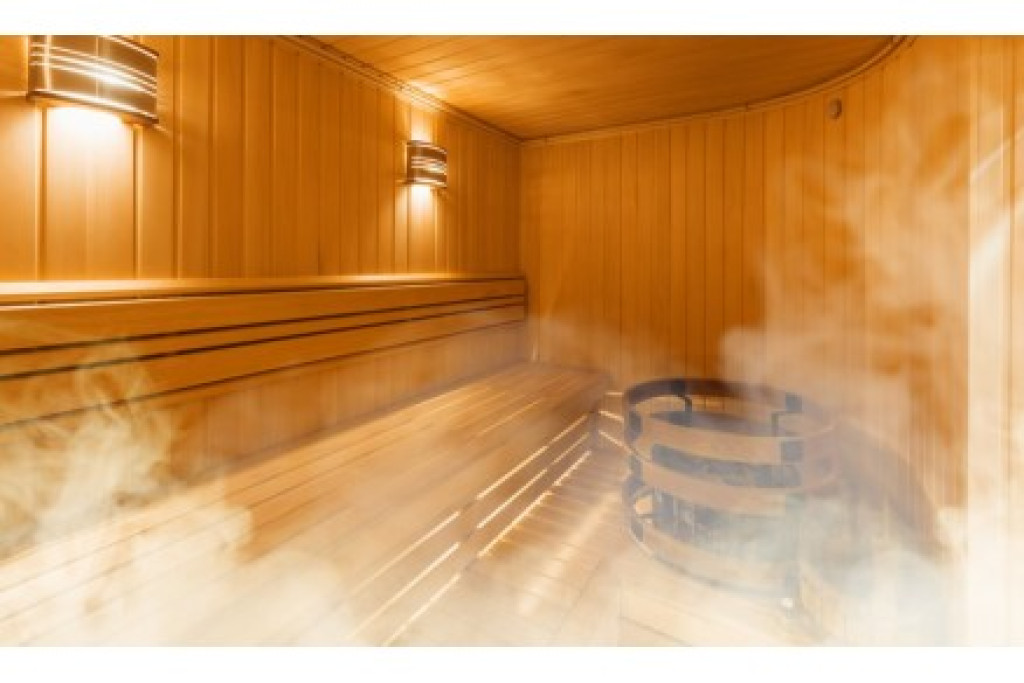IR Saunas and Steam Saunas vs Dry Saunas
IR and Steam Saunas versus Dry Saunas
Dry saunas, which are commonly referred to as traditional saunas, operate
on the principle of generating dry heat. This is typically achieved by heating
rocks or other like materials to a high temperature, which radiates heat into an
enclosed cabin. The temperature in a dry sauna usually ranges from 150°F to
195°F (65°C to 90°C), while keeping humidity levels very low, often between 10%
and 20%. This creates an environment of intense, dry heat that promotes deep
sweating and a profound warming up of your body.
The primary health mechanism at work in a dry sauna is the body's
response to the high temperature. As the body heats up, the hypothalamus
triggers the sweat glands to produce sweat in an effort to cool down. This
sweating process not only helps regulate body temperature but also serves as a
means of detoxification. Toxins and other
impurities are expelled through your skin. The dry heat from traditional home
saunas also promotes vasodilation resulting in improved blood flow and
enhancing the delivery of oxygen and nutrients to tissues.
The intense heat of a dry home sauna can also stimulate the
release of heat shock proteins, which play a crucial role in cellular repair
and protection. These proteins help to protect cells from damage, promote the
repair of damaged proteins, and also support overall cellular function. The
high temperature from a traditional sauna can also induce a mild
hyperthermic state, which has been shown to boost the immune system by
increasing the production of white blood cells and enhancing their activity.
Benefits of Dry Saunas for Health and
Wellness
One of the most significant benefits of dry saunas is their ability to promote cardiovascular health. Regardless of whether you use an indoor sauna or outdoor sauna, the intense heat causes the heart rate to increase, similar to the effects of moderate exercise. This cardiovascular response improves blood flow through better circulation, lowers blood pressure, and enhances overall heart function. Regular use of dry saunas has been associated with a reduced risk of cardiovascular diseases, including hypertension, coronary artery disease, and heart failure. For more information on how saunas can improve your health, visit https://www.health.harvard.edu/staying-healthy/saunas-and-your-health
Dry saunas have also been proven to be highly effective for muscle recovery and pain relief. Unlike IR saunas which promote lower temperatures, the deep, penetrating heat of a dry sauna helps to relax muscles, reduce stiffness, and alleviate pain. This makes dry saunas an excellent option for athletes or individuals with chronic pain conditions such as arthritis or fibromyalgia. The increased blood flow to muscles and joints also aids in the removal of metabolic waste products, speeding up the recovery process and reducing inflammation.
In addition to physical health benefits, dry saunas offer substantial
mental and emotional well-being advantages over an ir sauna. The
soothing environment of a dry sauna promotes relaxation and stress relief,
helping to reduce anxiety and improve mood. The heat encourages the release of
endorphins, creating a sense of well-being and happiness. For many, the dry
sauna becomes a place of mental and physical rejuvenation, providing a space to
unwind and escape the pressures of daily life. To view the different types of dry
saunas you can visit https://sunraysaunas.com/traditional/indoor-traditional
Steam Saunas versus Dry Saunas
There has also been a lot of debate about the benefits of steam saunas as
opposed to dry saunas. The primary difference between steam saunas and
dry saunas lies in the type of heat they produce. Steam saunas generate moist
heat with high humidity levels, while dry saunas produce dry heat with low
humidity. This major difference creates distinct experiences and impacts the
body in different ways. Steam saunas provide a warm, enveloping environment
that promotes respiratory health and skin hydration, while dry saunas offer
intense, penetrating heat that supports cardiovascular health and muscle
recovery.
Another key difference between a steam sauna and a dry sauna in
home is the temperature range. Steam saunas typically operate at lower
temperatures, between 110°F and 120°F (43°C to 49°C), while dry saunas reach
higher temperatures, usually between 150°F and 195°F (65°C to 90°C). Despite
the lower temperature, the high humidity in steam saunas can create an
equally intense heat experience. In contrast, the low humidity in dry saunas
allows for higher temperatures without the same level of discomfort.
The benefits of each type of sauna also differ. Steam saunas are
particularly beneficial for respiratory health, skin hydration, and relaxation.
They are ideal for individuals with respiratory conditions or those seeking to
improve their skin’s appearance. Dry saunas, on the other hand, as we have already
discussed, offer significant cardiovascular benefits, muscle recovery, and pain
relief. To view the different types of steam saunas you can visit https://steamshowers4less.com/steam-showers
Conclusion: Making the Right Choice
for Your Wellness Journey
Choosing between an IR sauna, steam sauna or a dry sauna is a personal
decision that depends on your specific health goals, preferences, and comfort
levels. These saunas offer unique benefits and can play a significant role in
enhancing your overall well-being. Understanding the differences between an ir
sauna, steam sauna or a dry sauna, as well as the specific
benefits each provides, can help you make an informed decision that aligns with
your wellness journey.
Ultimately, the best sauna for your wellness journey is the one that
resonates with your body and spirit. Whether you choose the enveloping warmth
of a steam sauna, the softer heat of an IR sauna or the penetrating heat of a
dry sauna, all of them can provide a sanctuary for relaxation, rejuvenation,
and healing. By incorporating regular sauna sessions into your wellness routine
and practicing proper safety measures, you can enjoy the numerous health
benefits and embark on a path to ultimate relaxation and well-being.









